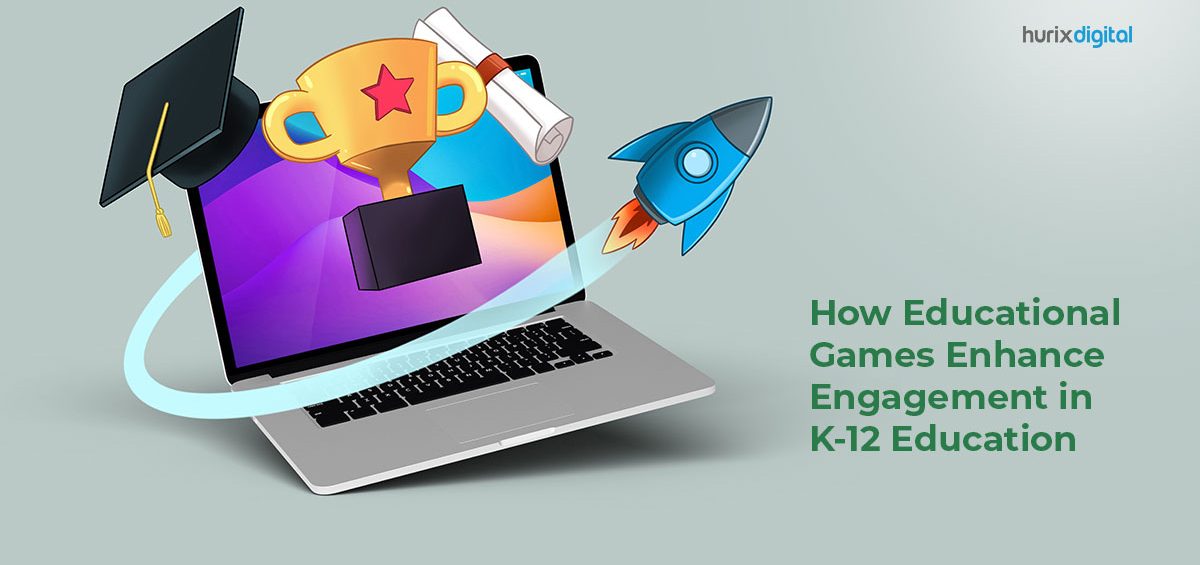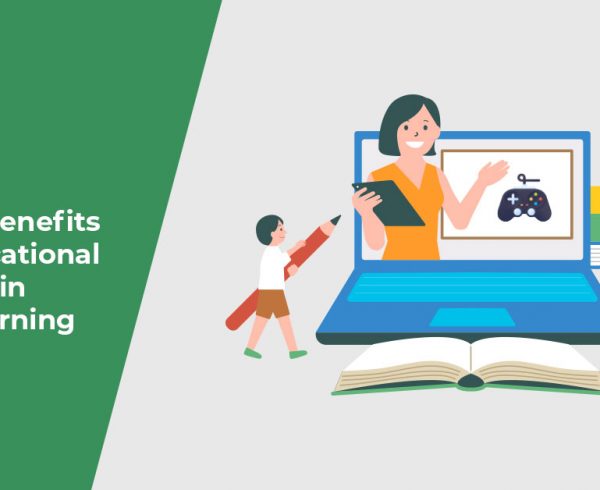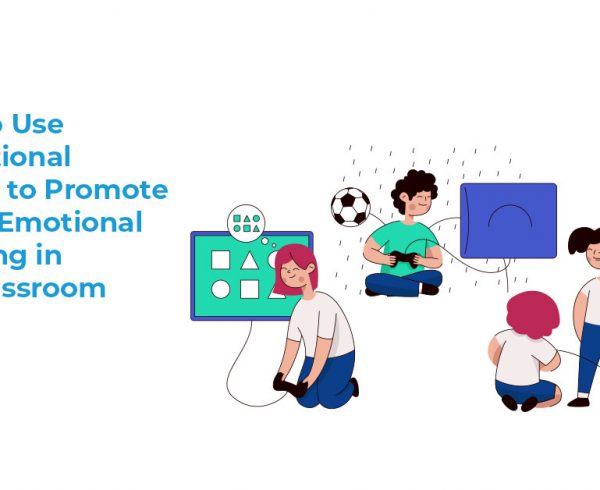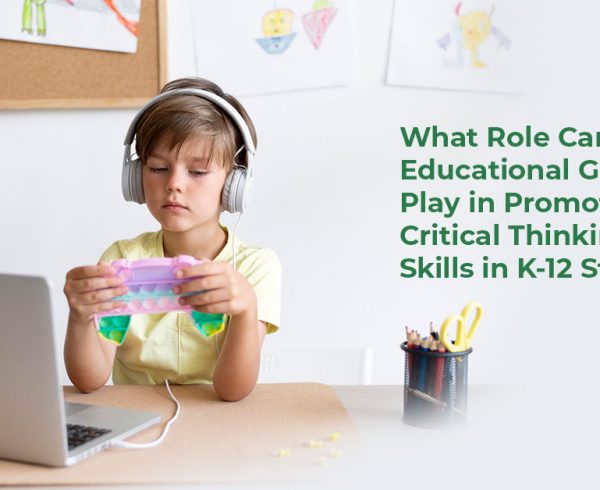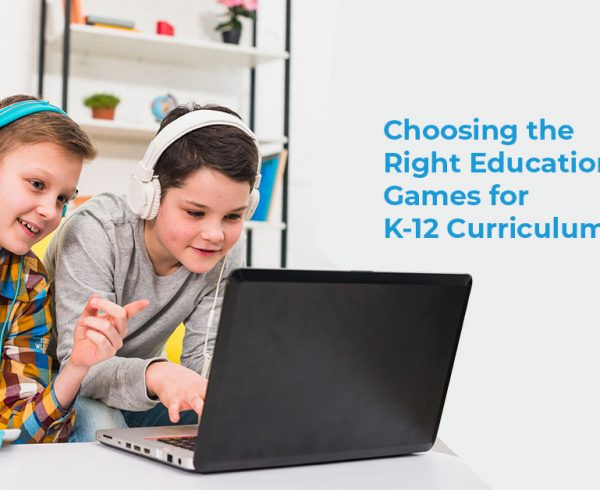Summary
This article discusses the benefits of using educational games in the classroom. It discusses how gamification in learning has been so successful and how it has been used to enhance student engagement in K-12 education.
In recent years, using educational games in the classroom has soared in popularity. Though game-based learning has been in use for generations, gamification in learning has become one of the leading digital learning tools that educators employ in K-12 education. Although traditional teaching methods remain proven, technology in education has transformed the way students learn, and in many cases, the way students prefer to learn. But, it’s not just about student preference. Research suggests that today, there are undisputed benefits of educational games in the classroom including enhancing engagement in K-12 education.
Table of Contents:
- Digital Learning Tools: Built for the Information Age
- Nine Advantages of Incorporating Gamification in Learning
- Game-Based Learning = Interactive Learning
- Gamification in Learning Naturally Appeals to Students
- Technology in Education Offers Personalized Learning
- Game-Based Learning Solutions Foster Collaboration and Social Interaction
- Benefits for K-12 Education and Real-World Application
- Using Education Games in the Classroom: Get Started with Hurix and Game Learning
Digital Learning Tools: Built for the Information Age
Though at times it seems as though technology is advancing so quickly it is difficult to keep up, studies show that children enjoy using technology. Because all K-12 students today were born after the internet took the world by storm, some have even coined them “digital natives.” The earmarks of digital natives are an affinity for using digital devices, and an intuitive ability to use them properly.
Beyond enjoying “screen time,” the research is clear that using educational games in the classroom is beneficial for students. Technology in education blends entertainment with K-12 education resulting in higher levels of engagement. Research has shown that gamification in learning is leading to results such as:
Nine Advantages of Incorporating Gamification in Learning

- Increased Student Participation
- Motivation to Take Safe Risks
- Improved Attitudes Toward Learning
- Improved Academic Scores and Grades
- Greater Focus for Students with Attention Disorders
- Improved Comprehension for Students with Dyslexia
- Enhanced Emotional Learning
- Enhanced Social Learning
- More Collaborative Classrooms
All of these benefits of technology in education share a common theme: they enhance student engagement in K-12 education.
Game-Based Learning = Interactive Learning
A primary reason that gamification in learning has been so successful is that game-based learning promotes interactive learning. Contrasted with passive learning methods such as reading textbooks, listening to instructions, or even watching videos, game-based learning solutions invite the student to actively participate.
Using educational games in the classroom requires student players to make decisions, use logic, think critically, experiment, fail safely, and otherwise participate in the learning process. Thanks to technology in the classroom, this active involvement results in greater engagement and often spurs a renewed motivation to learn.
Gamification in Learning Naturally Appeals to Students
Transforming learning into a game through technology in education results in greater engagement. Consider that children are naturally drawn to games. Many even invent their games as children. So it only makes sense that gamification in learning will attract the interest of students receiving their K-12 education.
Through game-based learning, students may earn points, advance to higher levels, win awards, earn spots on leaderboards, and ultimately complete games, thanks in part to transforming learning into a game. Moreover, students may enjoy a friendly competitiveness with their peers, prompting them to work harder, learn more deeply, and make new friends, all of which help foster greater engagement, and often greater willingness to learn.
Also Read: Gamification: 5 Effective Ways to Gamify Learning in Higher Education
Technology in Education Offers Personalized Learning
A personalized learning experience is one of the benefits of educational games in the classroom. Game-based learning solutions in K-12 education offer the advantage of interactive learning while catering to individual student needs.
It is well-documented that students often have preferred learning styles, and developers of game-based learning solutions know this. As such, different games may be designed to appeal to students who identify as visual learners, auditory learners, reading/writing learners, or kinesthetic learners.
Today, researchers are not convinced that categorizing students by a singular learning style is an effective teaching theory. Fortunately, one of the benefits of educational games in the classroom is that games often provide visual, auditory, kinesthetic, and reading and writing interactive learning opportunities. This makes them very inclusive digital learning tools.
Furthermore, game-based learning can be tailored to meet students where they are in their K-12 education. Games may increase in difficulty or complexity of content based on the student’s performance within the game. Personalizing learning has been shown to increase student engagement and achievement for all students, including those with learning disabilities.
Game-Based Learning Solutions Foster Collaboration and Social Interaction
Digital learning tools such as educational games help foster collaboration and social interaction among students receiving their K-12 education. This is one of the many benefits of educational games in the classroom. In addition to offering interactive learning, games in the classroom frequently offer multiplayer features. This enables students to work together to problem-solve, strategize, categorize, recall information, and much more. In doing so, engagement in a discussion feels social and often promotes a collaborative environment in the classroom.
When students are engaged with peers, they are more likely to communicate, share ideas, and learn from their peers. Concurrently they will be developing necessary social skills including teamwork, clear communication, and effective problem-solving, all of which will benefit them long after completing their K-12 education.
Also Read: Top 6 eLearning Trends for K-12 Education in 2023
Benefits for K-12 Education and Real-World Application
Educational games’ benefits extend beyond K-12 education to the real-world applicability of skills learned from digital learning tools. This is because game-based learning can bridge the proverbial gap between theoretical knowledge and real-world usefulness. By simulating real-life scenarios and challenges, students can apply their knowledge in practical contexts. Applying the knowledge acquired through using educational games in the classroom (critical thinking, problem-solving, decision-making) cultivates deeper understanding and relevance. Indeed, game-based learning in K-12 education provides opportunities for students to see the real-world implications of their learning, making it more meaningful and engaging.
Using Education Games in the Classroom: Get Started with Hurix and Game Learning
Researchers are only just beginning to identify all of the benefits of educational games in the classroom, as technology in education is relatively new, and advancing rapidly. However, students receiving their K-12 education in classrooms that utilize game-based learning solutions are acquiring valuable skills for academia and beyond.
Hurix Digital has partnered with Game Learning to provide award-winning educational video games for Maths, Science, History, and ELT. These programs are developed for Preschool, Primary, and Secondary age students, and are available from Hurix. To schedule a demo or to learn more, send us an inquiry.
Frequently Asked Questions (FAQs)
1. How do educational games promote active learning?
A. Educational games promote active learning by requiring students to actively participate, make decisions, solve problems, and apply knowledge within a game-based environment.
2. Can educational games be aligned with curriculum standards?
A. Yes, educational games can be designed and aligned with curriculum standards, ensuring that they address specific learning objectives and content areas.
3. Do educational games cater to different learning styles and abilities?
A. Yes, educational games can be designed to cater to different learning styles and abilities by providing multiple pathways, adaptivity, and scaffolding to support individual student needs.
4. Can educational games be used across different subjects in K-12 education?
A. Yes, educational games can be used across different subjects in K-12 education, including math, science, language arts, social studies, and more, providing interactive learning experiences in various disciplines.
5. Can educational games provide immediate feedback to students?
A. Yes, educational games can provide immediate feedback to students, allowing them to learn from their mistakes, make corrections, and reinforce understanding in real-time.


